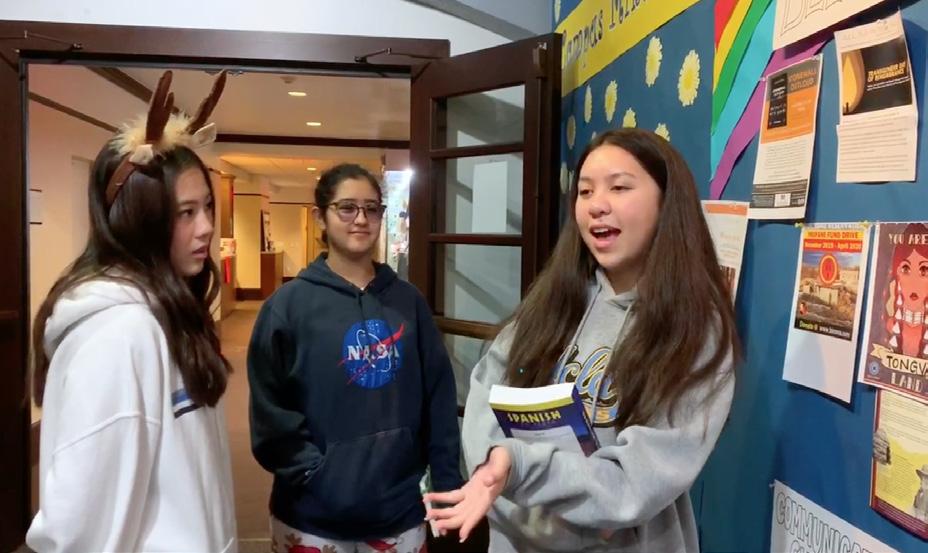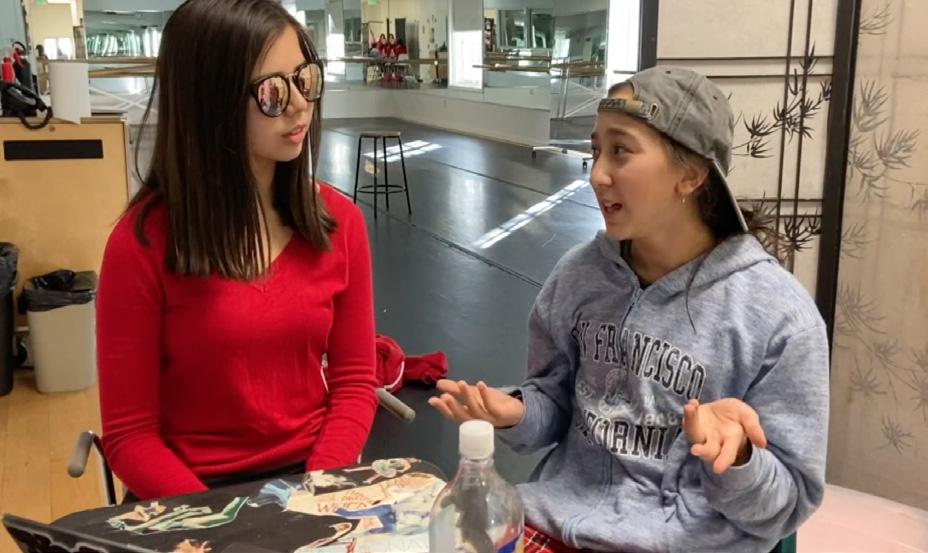
3 minute read
Theology Students Build a “Muscle Memory for Justice”
Guided by their values and empowered by techniques they learned in class, these 10th-graders find their voices as advocates and allies. How? By following our founder, Cornelia Connelly’s, advice to “practice virtue little by little, in act after act.”
All over campus, these sophomore students are calling each other out on bad behavior. Again and again, they challenge their peers for being disrespectful, thoughtless and mean.
Advertisement
“How would you feel if you were in her position?”
“I don’t think that was really cool of you.”
“Why can’t you accept people for who they are or leave?”
Spoiler alert: These are fictional scenes from student-produced “What Would You Do?” segments, their versions of the long-running hidden camera TV show that puts people in ethical dilemmas.
These students might be playing a role—and, in some cases, really hamming it up as the villain or the heroine—but sophomore theology teacher Michelle Gergen believes that the act of saying these things out loud, face to face, helps them build the commitment, conviction and confidence to speak up for injustice.
As part of a year-long focus on Holy Child Goal 5, which asks our school community to foster “trust and reverence for the dignity and uniqueness of each person,” Ms. Gergen collaborated with Sarah Briuer Boland, Mayfield’s Co-Director of Justice, Diversity, Equity and Inclusion, to create an integrated, hands-on lesson that mined real-life situations to help students activate their empathy. In short: to help students develop a “muscle memory for justice.”

Sophomores collaborated on a “class code” to serve as their foundation for addressing injustice.
Ms. Gergen tasked her students to come up with “micro-moments” they might encounter and then practice standing up for others. They invented scenarios that felt real to them, like overhearing someone insult a student who doesn’t have money for lunch, noticing students making fun of a classmate for talking to herself, or encountering unfair classroom favoritism. They’re learning to recognize micro-aggressions fueled by discriminatory thinking, privilege, and implicit bias—and to tackle these uncomfortable situations with integrity.
They’ve been working toward this since their first theology class in the fall, when they began by devising a “class code”—a shared set of values they stood for, like loyalty and respect, that would provide the ballast to help navigate confrontation and keep them accountable. Students distilled their Class of 2022 beliefs in a series of classroom brainstorming sessions, and pulled from other ethical frameworks including the Holy Child goals, the Beatitudes and the Ten Commandments.

Sophomore theology students’ “What Would You Do” videos helped them learn to advocate for others with “Actions Not Words.”
— ALEXA VALENZUELA ’22
“We want students to have a solid foundation of what they stand for,” Ms. Gergen said, before they encounter much more prickly challenges, things that might feel “incongruent with what they believe they’re trying to be.” This video project was the final step in empowering students to act as advocates for those who need their help.
So did the lesson work? Ms. Gergen recounts an inspiring example of one student putting what she’d learned into action (see page 21), and other students agree that building this “muscle memory” has empowered them to speak up off-camera.

Sophomore theology students’ “What Would You Do” videos helped them learn to advocate for others with “Actions Not Words.”
“I think it really helped me,” said Alexa Valenzuela ’22. “There’s been many cases where before I think I was just scared of what was going to happen or what they would think of me.”
But she’s learned to take action. “I’ve been in a scenario where someone has been disrespectful to someone else and I just told them, ‘That’s not right. It’s not what you should be doing,’ ” Alexa said. “I’ve definitely been able to stand up more for my community and for those marginalized.”
Emily Vargas ’22 said that this year’s theology classwork has helped her and her classmates become aware of injustice, large and small, and use their voices to be part of the solution. “It has really opened our eyes to a lot of things that happen, especially now, in terms of all the political unrest that’s going on,” Emily said. “So many of my classmates are so vocal about it, and I think it’s so great—whether it’s through social media or protesting, donating, signing petitions—that we all really stood up for what’s going on in the world right now. And I think a lot of that is due to Ms. Gergen teaching us how to be powerful people to help those who are being hurt in the world.”










